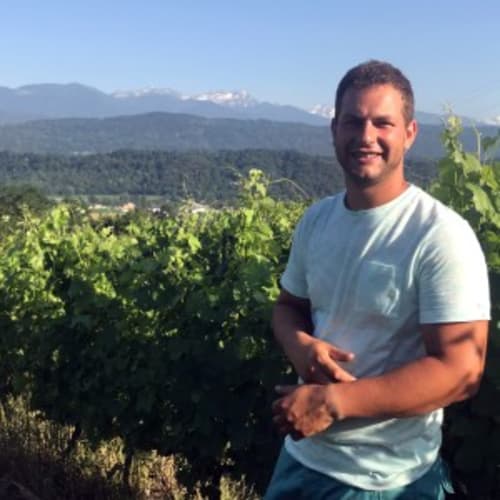Cellier de la Baraterie
France > Savoie

REGION(S)
France > Savoie
GRAPE VARIETIES
Jacquère, Roussette, Mondeuse
APPELLATIONS
AOP Mondeuse-de-savoie, AOP Roussette-de-savoie, AOP Vin-de-Savoie
SOURCING
Growing
VINEYARD
10 ha
PRODUCTION
30000 bottles per year
organic farming (certified), practicing biodynamic farming (not certified)
Cellier de la Baraterie is a domaine in Savoie, in the French Alps. At its helm is Julien Viana, a talented young farmer and winemaker from the heart of the region. He took over the winery in 2014 from Serge Bouchez, a well-established winemaker in the village of Cruet, where Julien grew up. Julien is not from a winemaking family, and Bouchez had no children or relatives to continue his domain after his retirement, so the match was perfect. Upon finishing his winemaking studies in Beaujolais, Julien returned to Savoie and began his work with a 1-hectare vineyard (2.5 acres).
Today, Julien cultivates 10 hectares (25 acres) on the Combe de Savoie not just in Cruet, but also in the villages of St. Jean de la Porte and Arbin. He dedicates half of his land for production of his own wines, while the rest he cultivates for other winemakers. All of his farming is done according to organic principles. His production covers the classic grapes and appellations of the region: Jacquère, Altesse and Malvoisie for the white wines, with Mondeuse and Gamay for the reds. A farmer first and foremost, Julien is strongly committed to a natural, sustainable and organic approach to agriculture. This philosophy extends to the work in the cellar, as well.
He lets all of the wines ferment naturally with wild yeasts. Wines are matured in neutral tanks, mostly stainless steel and occasionally used oak barrels for some of the white wines. He uses minimal amounts of sulfur at the bottling stage for stability, thus the wines deeply express the grapes and their terroir. After his initial winemaking studies, Julien also studied biodynamic farming during a bachelor of science at the university of Montpellier. While not certified biodynamic, nor using the full panel of biodynamic techniques, he implements many of the practices. Almost all his vineyards are certified organic, with the rest in conversion.